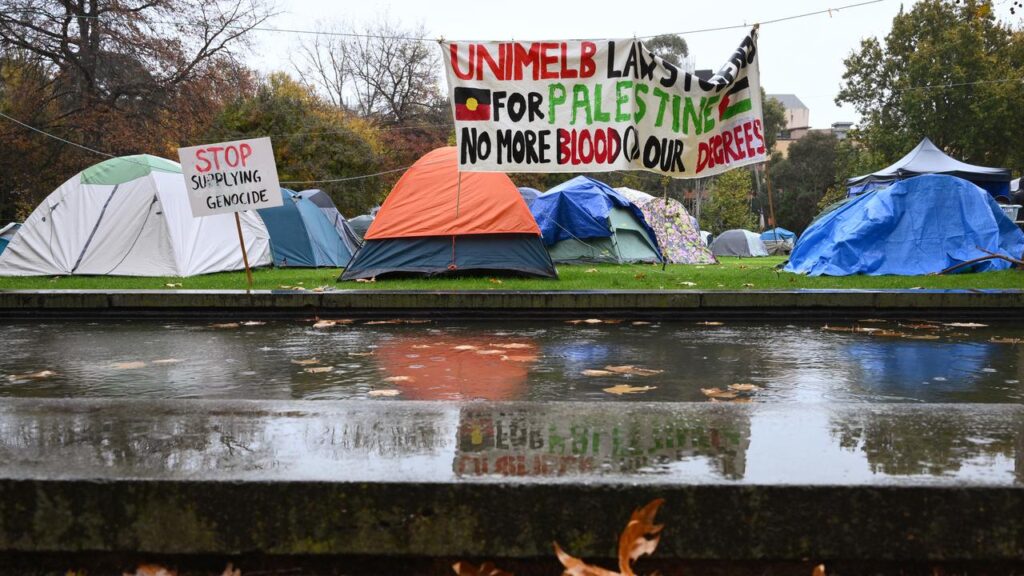Protest crackdown creates ‘culture of fear’ on campuses
Allanah Sciberras |

Staff and students describe a pervasive “culture of fear” at one of Australia’s top universities following a furore over pro-Palestine encampments.
University policies had led to self-censorship, restricting their ability to speak openly about pro-Palestinian movements on campus, they told an inquiry convened by Greens senator Mehreen Faruqi, the National Union of Students, the Australia Palestine Advocacy Network and others.
Encampments sprung up at university campuses around the world, with students calling on their institutions to cut ties with weapons manufacturers and condemn Israel’s war in Gaza.

The University of Melbourne ordered protesters to leave its Parkville campus in May 2024 after they occupied a building they named ‘Mahmoud Hall’ in honour of Mahmoud Alnaouq, a young Palestinian man killed in the Israel-Gaza war who had been set to begin his studies at the university.
At the time, deputy vice-chancellor Michael Wesley said protesters had crossed a line and police had advised on how to end the indoor demonstration.
Sophie Rudolph, a senior lecturer at the university, told the inquiry there was an “atmosphere of fear” among staff members.
“We had a number of concerns over the actions the university has taken that (have) repressed speech and action around solidarity with Palestine, and with the universities’ links with weapons manufacturers,” she said.

Dr Rudolph cited an example of a staff member who was not allowed to display posters supporting Palestine on their office door or wear symbols that expressed their support.
“These are minor but they are part of the insidiousness of the repression and they contribute to other staff members who may not feel as confident,” she said.
“(They) are self-censoring and they are thinking about when they can and cannot have these conversations.”
Dozens attended the inquiry on Wednesday, while security guards patrolled the building where the gathering took place.

A Melbourne University spokesperson said protesting on campus must be conducted peacefully and respectfully.
The university said it did not support protest activity that “unreasonably disrupts activities or operations of the university” or the safety and wellbeing of staff and students.
“Freedom of speech, and the right to lawful peaceful protest, are respected and supported at the University of Melbourne and are central to our values and identity,” the spokesperson said.
Organiser Jos Downey detailed conditions protesters faced during their encampment at Monash University, claiming intimidation, abuse and threats from campus security and opposing groups.

Jasmine Duff, a leader of the Deakin University encampment, told the inquiry she had been tipped off that gardeners were instructed to disrupt the protesters’ sleep, including one incident where they were woken at 2am.
Ms Duff, the co-convenor of Students for Palestine, testified that universities had been “extraordinarily repressive” towards students who wished to protest.
“Students have been put through serious disciplinary procedures, risking their degrees, for participating in peaceful protests against the genocide in Gaza,” she said.
“Universities should be havens of free speech and debate, but instead those who speak out against the brutal onslaught in Gaza are punished.”
The inquiry comes shortly after the federal government received recommendations from a major anti-Semitism report.
The nation’s special envoy against anti-Semitism, Jillian Segal, called for the defunding of universities and cultural institutions that enable or fail to prevent anti-Semitism.
AAP